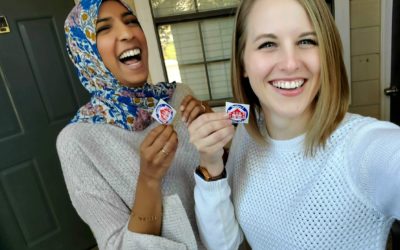Kristi Dietert Selected as TL1 Scholar
Kristi Dietert, a student in the Cell Biology, Genetics, and Molecular Medicine discipline of the Integrated Biomedical Sciences Ph.D. program, has been selected as a Translational Science Training TL1 scholar for 21-22. The Translational Science Training (TST) TL1 Program at UT Health San Antonio is supported by a NIH / National Center for Advancing Translational Sciences (NCATS), a federally funded career development training program for improving the scope of predoctoral trainees and postdoctoral fellows research experience. The TL1 ‘Training Linked’ Program is linked to the Clinical and Translational Science Award (CTSA) administered by the Institute for Integration of Medicine and Science (IIMS) at UT Health San Antonio. The competitive award includes stipend support for TL1 scholars in addition to training and mentorship in translational science. Sanchez will be joined with the following scholars: Valentina Garbarino, Noah Sanchez, Clare Murray, Raphael Reyes and Afaf Saliba. Kristi Dietert’s research is focused on providing a better understanding of the mechanisms that drive adult neurogenesis specifically within the context of brain aging and recovery after brain injury. She is in the lab of Dr. Naomi Sayre. “The brain in general is still such a frontier for biomedical discovery. Coupling that with the equally not-well-understood processes that are involved in aging and we are looking at something in great need for scientific discovery,” she said. She first learned about the statistics surrounding neurodegenerative diseases like Alzheimer’s disease while taking her introductory course in the IBMS Ph.D. program. “That’s when I knew I had to join the initiative to solve this crisis,” she said. “I really believe that the work I am doing right now is becoming part of the collective body of knowledge that informs better therapeutic approaches.” Dietert would like people to be aware of neurodegenerative diseases like Alzheimer’s. “It seems like anytime I talk to anyone about it, they have been affected by it in some way – usually a family member who has/had it. I’m a very empathetic person, so when I talk to people who either are suffering from one of these diseases themselves or who have family members who are, it really reminds me just how imperative our work is and just how important it is to keep at it,” she said. She is excited to be a TL1 scholar to have training in making science directly translational to the clinic. “For me, translational science exists at the crossroads of my two biggest passions in life – helping people and scientific discovery. I have always found myself most motivated when what I am doing has a direct impact on alleviating human suffering,” she said. “This, combined with my natural love for exploration, makes translational science the perfect recipe for me. I am super grateful to have been chosen as a recipient of this award.” In addition to the TL1 scholar award, she has been an active member in the following groups: IBMS Student Council, Graduate Student Association, WISDOM (women in science). She also served as a student representative on the search committee for the program director of IBMS and during the THECB review. She is also serving as a vice chair of the neuroscience section in the Texas Academy of Science. “I love getting to interact with students at earlier stages in their training and giving whatever advice or support I can offer,” she said. She explained that her routine has changed a lot as a result of COVID-19. “I miss all the different people-oriented activities that we used to have and I am very much looking forward to when those can pick back up safely,” she said. “One of my favorite things about UT Health is the people (students, faculty, staff, etc) who are so clearly passionate about what they do. I also love the dynamic research exposure we have here. I appreciate being able to go to all the different seminars and seeing such varying approaches to research.” After graduation, she plans to do a postdoctoral fellowship. “I am starting to look into labs I would be interested in joining so I can begin discussing what that would look like,” she said. “I have at least another year here to finish up the Ph.D., but I am really looking forward to continuing my training in a new lab where I will be able to gain even more skills to equip me to become an independent investigator.”
